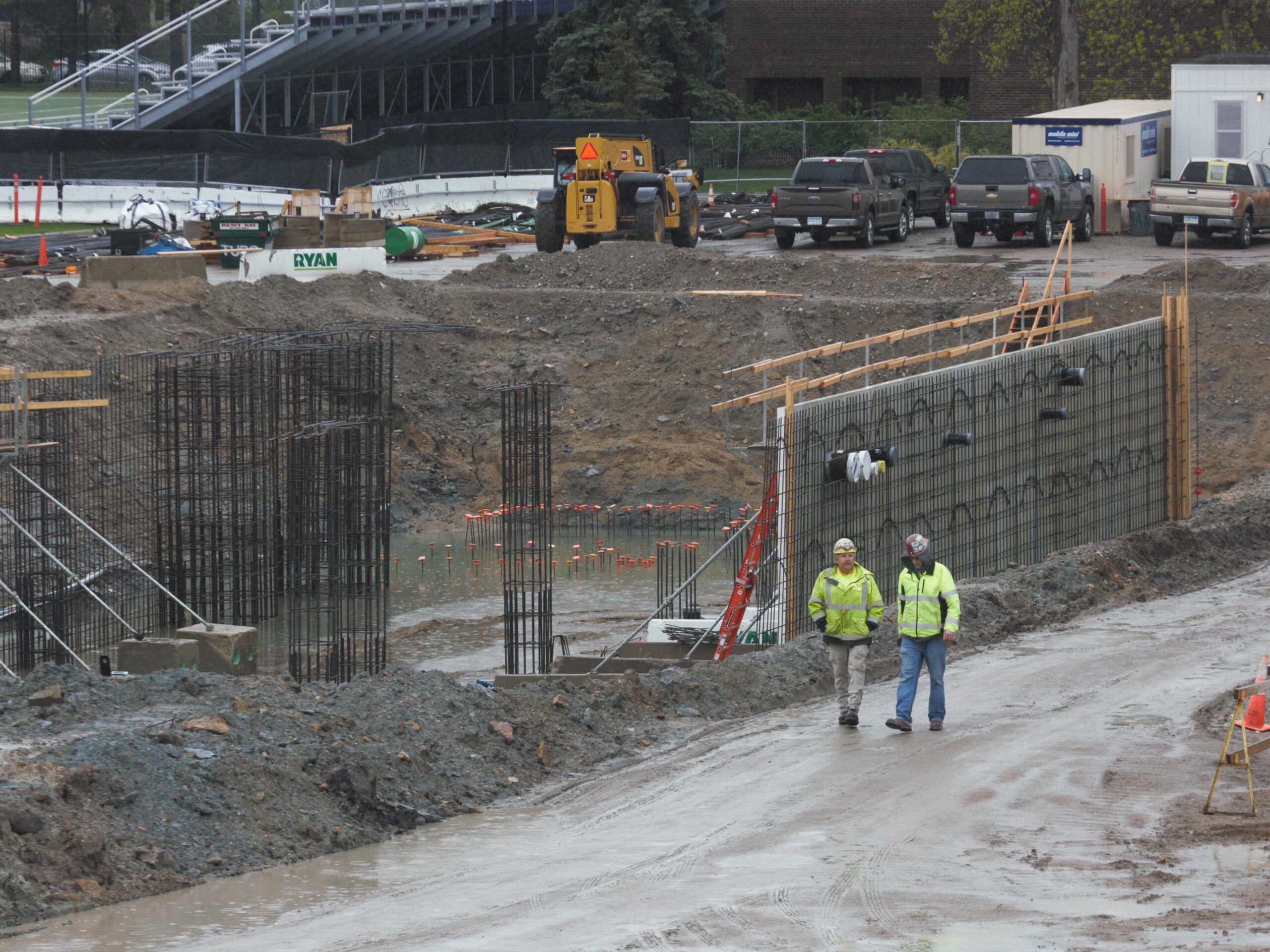The St. Paul City Zoning Committee unanimously denied both appeals against the Lee and Penny Anderson Arena site plans at a public meeting on Thursday, May 2.
Construction will still be halted until Friday, May 10, when the St. Paul City Planning Commission is expected to approve the ruling of the zoning committee.
The four-hour-long meeting featured testimony and presentations from members of the Advocates for Responsible Development. St. Thomas and Ryan Companies gave presentations against the appeal.
Donn Waage and Virginia Housum — both members of ARD — filed the first appeal on April 15 over the arena’s site plans. That appeal was followed by a separate filing by Daniel Kennedy on behalf of the ARD.
The meeting was open for public comments.
Sophomore Lucas Whalin, captain of the St. Thomas men’s hockey team, said the new arena would provide social and academic benefits for athletes who play hockey compared to their hockey rink’s current location at St. Thomas Academy.
“I have to set apart time to make sure I get to the rink in a timely manner, and I have to put apart to make sure I can get my academics in line as well,” Whalin said. “Socially, it can be difficult to make friendships and relationships as not many friends and students are allowed or able to come to our games in Mendota Heights, as not many students have vehicles, so that poses a problem as well.”
Senior Kate Kasper, executive president of the Undergraduate Student Government, also spoke in favor of the arena.
“On behalf of the undergraduate student population, we fully support the Lee and Penny Anderson Arena,” Kasper said. “We see the arena as a key means to expand our geographic diversity and strengthen our contributions to the workforce in the Twin Cities area.”
President-elect of the Undergraduate Student Government, Jake Manskey, said he was “disheartened by the necessity to oppose a small group of neighbors who perceive the Anderson Arena as selfish.”
“The true selfishness in this situation lies with those who seek to deprive our local families and students of the substantial economic and community benefits the arena will promise.
“While it’s my hope for St. Thomas and its community members to maintain a cordial relationship, we must address the fact that there was a conscious choice to reside near an established and expanding university. St. Paul is a dynamic and evolving city, much like St. Thomas itself … both will continue to be a growing force in the Midwest. For those who may have overlooked this reality, perhaps it’s time to consider exploring alternative neighborhoods.”
In response, neighborhood resident Michael Fellner called Manskey’s remarks “offensive and outrageous.”
“I think you owe an apology to everyone in the neighborhood, as well as the city of St. Paul … Most students who come to St. Thomas don’t end up in St. Paul,” Fellner said. “And we (neighbors) end up supporting St. Paul, and we end up supporting St. Thomas.”
Fellner continued in opposition to the arena and said that the city needed to “find an alternative site” for the project.
“We all are in agreement that you need an arena. But you’ve known this for years, and now you’re just trying to shoehorn into the legal construct of the zoning code, the copy and all this other thing into a spot that is untenable for the city and will cost the city.”
Others cited the 2004 Conditional Use Permit that regulates the University of St. Thomas campus, accusing the university of not following through with the stipulations of the permit.
St. Thomas’ 2004 Conditional Use Permit states the following:
“At such time as the University remodels or replaces the Binz Refectory or replaces Grace Hall, the loading drive which currently exists between Goodrich Ave. and the Binz Refectory shall be removed, such that there shall be no vehicular access from Goodrich Ave. to any of the University’s buildings on the south campus.”
Marc Manderscheid — who spoke against the arena’s construction — cited building permits and testified that St. Thomas had filed permits “to remodel a portion of the building to accommodate athletic offices, team rooms, and additions of unisex restrooms.”
“Over $1 million of work has been done in remodeling the building,” Manderscheid said. “The university must comply with the conditional use permit. It’s relatively simple in this instance. If you’re even thinking about granting what the university wants here, then you should go ahead and add a condition to your approval, and the university must go ahead and remove the driveway.”
Virginia Housum said that the issue demonstrated a violation of trust on behalf of the university.
“If they’re not going to comply with the CUP, what else aren’t they going to comply with?” Housum said.
Owen Larson can be reached at lars6521@stthomas.edu.

